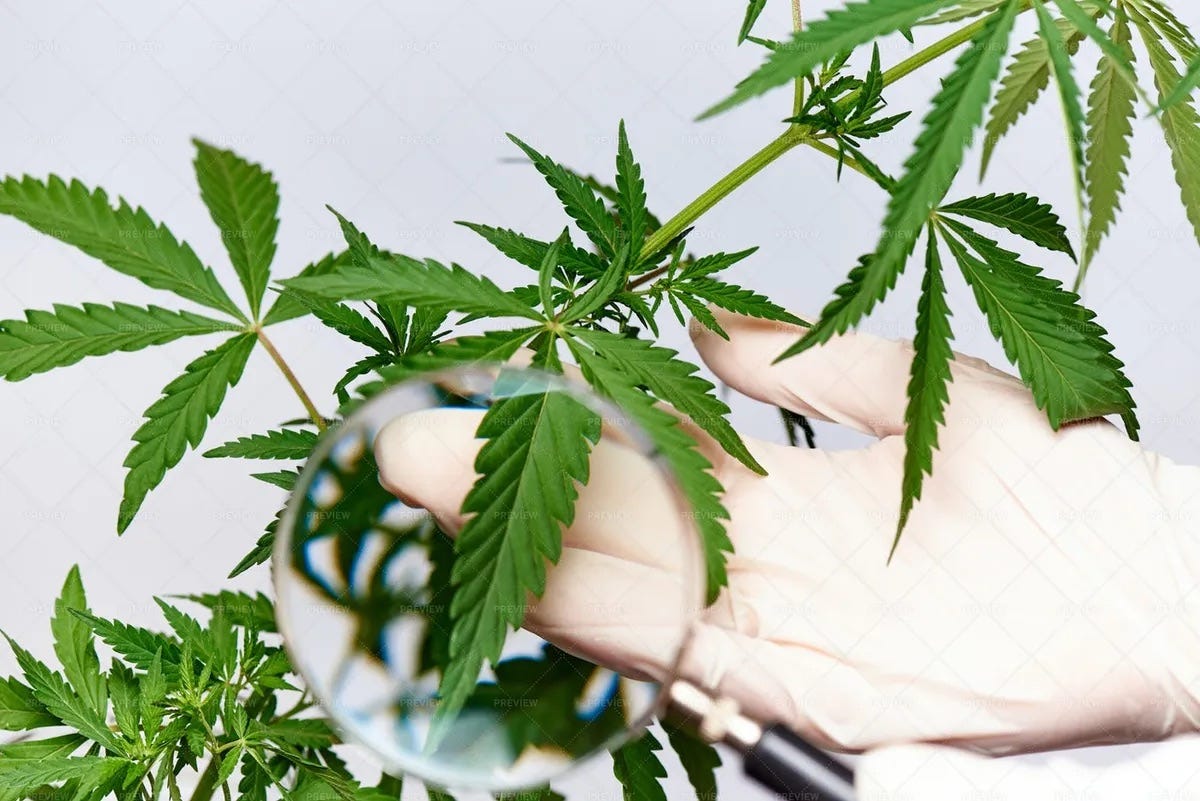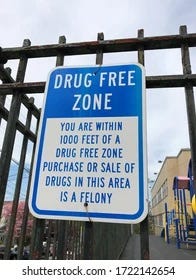South Dakotan Officials will subvert your vote, and make you pay for it.
“Meth! We’re on it! Weed! We ain't about it!”
I suppose I have much to be grateful for considering the rejection of South Dakotans for Better Marijuana Laws Measure 27 proposal this past November was my biggest disappointment in 2022. Unfortunately, I still have a bad taste in my mouth after the upset to our legalization efforts.
I’m equally salty about Kristi Noem’s taxpayer-funded efforts to overturn Amendment A back in 2021, which was passed with a simple majority vote in the 2020 General Election. This was a particularly well executed move on her part. We had the support in the general election, but we fared poorly in comparison during the midterms. We lost roughly 60k votes due to lackluster turnout.
I believe this was intentional for that simple reason.
I was so invested in Measure 27’s success. There’s a certain feeling you get knowing you’re directly involved in being the change you truly believe in.
The liberty-minded people who shared in my longing for legal access to an overwhelmingly safe drug are undoubtedly just as disgruntled after our Governor spent tax payer dollars to push back against Amendment A, which resulted in a lower court nullifying the Amendment. This ruling was upheld by the SD Supreme Court.
Upon further consideration, I realize there was likely merit to the decision based on South Dakota’s 2018 Constitutional Amendment which states that,
“A proposed amendment may amend one or more articles and related subject matter in other articles as necessary to accomplish the objectives of the amendment; however, no proposed amendment may embrace more than one subject. If more than one amendment is submitted at the same election, each amendment shall be so prepared and distinguished that it can be voted upon separately.” Although, I do want to clarify that this is not me justifying the legislatures decision to continually vote down any type of legalization for recreational use, despite having majority support for it. Constitutional Article 23 | South Dakota Legislature
With that in mind, I felt compelled to contribute however I could. Be the change you wanna see… right? So, I offered to volunteer for the Yes On 27 Campaign, and was promptly added to the team of canvassers.
It was the first time I have ever volunteered in a political campaign. It gave me a sense of purpose. It had me feeling like I played a role in manifesting the change I wanted.
One would think, in a state that touts its adherence to principles of freedom, something such as recreational marijuana which is verifiably safer than alcohol, would be “allowed” to hit the books after the voters deemed it so.
But let’s be real, authoritarianism is the norm these days. If you vote a representative in, and the majority of the voting body passes a resolution or voices opinions that conflicts with their interests, they will use the power YOU bestowed upon them against you. That is a fundamental issue that we all face today.
I highly recommend getting involved in local politics when there are issues you feel passionate about. It’s immensely rewarding.
I know many people whose lives have been ruined by their choices in regards to cannabis. What I’ve always seen as harmless personal choices that are accompanied by negligible negative implications for society as a whole, have led to life altering consequences for many of my fellow Tokers.
I am not referring to those who engage in high level distribution, alongside the distribution of much more harmful drugs, with no regard for the negative impact they have on the people they serve. I am talking about those who never saw the “evil” that so many were convinced of.
These generally peaceful couch warriors consuming an intoxicant that is substantially less harmful, and arguably more beneficial than any other legal and socially acceptable recreational substance, most common amongst them is Alcohol, Tobacco (nicotine), Caffeine, and Sugar, should not be subject to decades in prison for partaking.
It’s a disgrace in my opinion.
They were left with their lives in shambles. Their kids lives being upended as a result of losing a parent to the overly aggressive judicial system.
Sadly, many of these people had little-to-no meaningful opportunities post incarceration, which seems like cruel and unusual punishment for the average pot smoker to endure.
This system is unacceptable, and it must change at a federal level.
These other recreational substances have been proliferated and commercialized over decades, if not centuries, at the expense of consumers with very little consideration for the negative impacts they have on their health; up until recently that is.
I do not in anyway condemn the use of, or free trade of these substances. I also do not see them as inherently “evil” or overtly harmful. They have their place in my opinion. That place is the in exercise of freedom of choice, bodily autonomy, medical freedom, and the practice of Libertarian principles.
What I take issue is with is the cultural stigma associated with cannabis when compared to the aforementioned substances. Not only have we cast a dark cloud over the lives of those who engage in the recreational use of the plant, but it had tangible negative effects on our society as a whole.
Here are some examples of the negative impacts prohibition has had, and currently has:
Marijuana prohibition subjects users to added health hazards:
Adulterants, contaminants, and impurities: Marijuana purchased through criminal markets is not subject to the same quality control standards as are legal consumer goods. Illicit marijuana may be adulterated with much more damaging substances; contaminated with pesticides, herbicides, or fertilizers; and/or infected with molds, fungi, or bacteria.
Inhalation of hot smoke: One well-established risk of marijuana consumption is the fact that smoke is bad for the respiratory system. Laws that prohibit the sale or possession of paraphernalia reduce the use of vaporizers, which are proven to reduce these risks.
Because vigorous enforcement of marijuana laws forces the toughest, most dangerous criminals to take over marijuana trafficking, prohibition links marijuana sales to violence. According to the Congressional Research Service, more than 80,000 people lost their lives between 2006 and 2015 in Mexican drug cartel-related violence.
There is no government tracking of the number of lives lost related to cannabis prohibition, but individuals have died while being incarcerated on possession charges, cannabis sellers have been killed during armed robberies, and young adults found with cannabis have been killed after being coerced into becoming police informants.
In 2001, a National Research Council study sponsored by the U.S. government found “little apparent relationship between the severity of sanctions prescribed for drug use and prevalence or frequency of use, and ... perceived legal risk explains very little in the variance of individual drug use.” The primary evidence cited came from comparisons between states that have and have not decriminalized marijuana.
The arbitrary criminalization of tens of millions of Americans who consume marijuana results in a large-scale lack of respect for the law and the entire criminal justice system.
Civil forfeiture laws allow police to seize the money and property of suspected marijuana offenders — charges need not even be filed. The claim is against the property, not the defendant. The owner must then prove that the property is “innocent.” Enforcement abuses stemming from forfeiture laws abound.
A federal survey found that 4.4% of former state prison inmates had been sexually victimized the last time they were incarcerated. Females were almost twice as likely to be victimized by other inmates than males.
It has also prevented research into the medical use cases it has to offer.
Some of these medical benefits are so profound, one can hardly deny how atrocious the stigmatization and subsequent criminalization of cannabis actually is. Some of the benefits include, but are not limited to:
Better Cholesterol Profiles and Lowered Risk of Cardiovascular Disease
Reduced Risk of Cancer
Helps Maintain Brain Health and Create Resilience to Trauma and Degeneration
Anti-inflammatory Benefits of CBD
It’s sad because it was deemed “as safe as alcohol” in the 70’s by The Shafer Commission.
“The Shafer Commission found in 1972 that cannabis was as safe as alcohol, and recommended ending prohibition in favor of a public health approach. But by then the Federal Bureau of Narcotics had been removed from the Treasury Department and merged into the U.S. Department of Justice—where Nixon’s ally, Attorney General John Mitchell, placed cannabis in Schedule I in 1972”
Now I know recreational takes the back seat to medical as it opens up the masses to the substance at an uncontrolled rate, in comparison to the regulated distribution of medical cannabis for treatment. Still, I have yet to see any substantive evidence that recreational has any profound adverse effects on communities that would set it aside from any other widely used substances.
I implore anyone to provide studies that can undeniably prove a causal relationship between cannabis legalization and negative societal impacts. I would argue that we have almost a centuries worth of data that shows it’s the strict enforcement of prohibition that has facilitated more violence, destruction of the family, and individual destruction that has caused significant negative societal harms.
Why I even bother asking is because the opposition campaign made factually inaccurate claims with the backing of debunked studies, or simply claimed untrue things about how bad herb is. I do recognize there are negative side effects from cannabis use, but none so severe they justify the prohibition of it.
Correlation is not causation; it can be disregarded as nothing more than hypothesizing portrayed as a scientific theory by those who choose to spread fear due to a lack of knowledge and understanding.
This issue does not have to be a partisan issue. Yet it remains as such. Much less so than ever before, but substantial enough that it prevents progress in this regard.
Personal freedoms that generate overwhelming benefits for our society, yielding minimal consequences for individuals and public health should NOT be a partisan issue.
So I find myself asking what the true motives are behind the continual opposition to Marijuana Reform?
Free the Weed!





